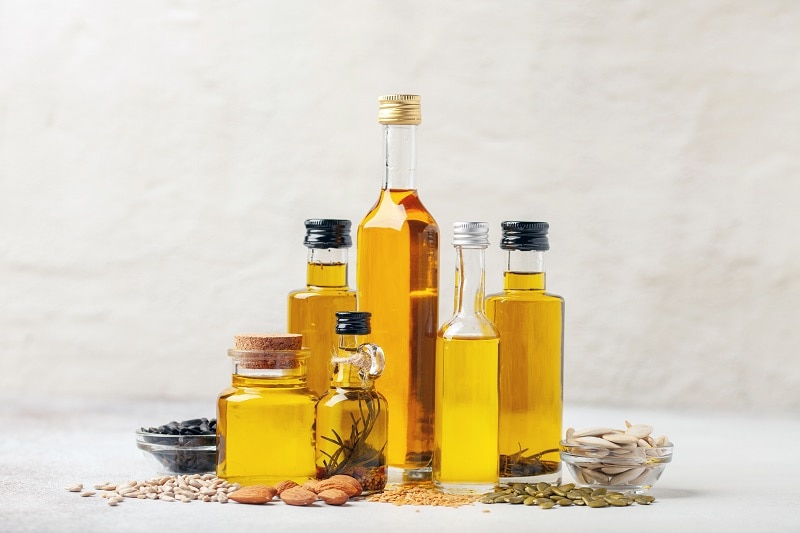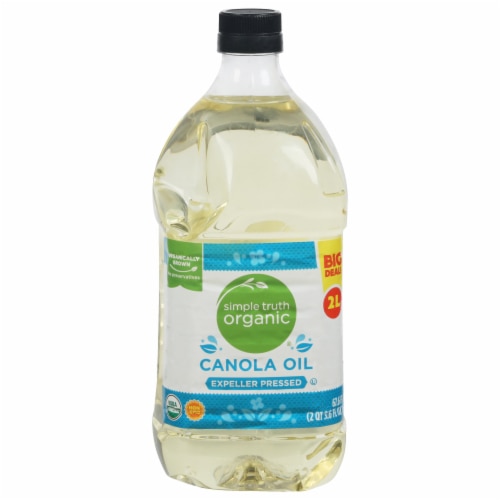[vc_row][vc_column][vc_column_text]In today's health-conscious era, the quest for optimal nutrition has led many to reevaluate their cooking oils. Among the options gaining traction are seed oils. Navigating the aisles of the grocery store can be overwhelming, given the plethora of choices. Understanding the extraction processes, nutritional profiles and culinary properties of seed oils is essential for making informed decisions about which oils best suit individual dietary needs. From the extraction methods to the dietary implications, this article aims to shed light on the multifaceted world of seed oils, so you can confidently select the right options for your kitchen and health.

What Are Seed Oils
Seed oils are edible oils made from the extraction of seeds. Common seed oils include
canola oil,
vegetable oil, corn oil,
grapeseed oil and
sunflower oil. These oils are extracted from plants using either a chemical solvent or oil mill. Once extracted, they are often purified, refined and sometimes chemically altered. This kind of extraction technology was developed in the 20
th century and the use of these oils has risen dramatically.
One benefit of most seed oils is that they can remain stable at high temperatures which is ideal for baking, frying and keeping a neutral taste. Another potential benefit of seed oil is the composition of polyunsaturated fats. Polyunsaturated fats cannot be made by the human body, so they are essential to consume through the diet. Additionally, they may benefit
heart health due to their ability to raise HDL (“good”) cholesterol and lower LDL (“bad”) cholesterol, as opposed to saturated fats such as butter, lard, and tallow, which lower HDL and raise LDL cholesterol.
What is the controversy over seed oils?
We hear it time and time again, to eat with “balance and moderation,” and that is also true with seed oils. There are two different kinds of polyunsaturated fats:
omega-6 and omega-3. We like to keep these at a balance – a 1:1 ratio to be exact. Most seed oils have higher levels of omega-6’s compared to omega-3’s.
Due to their heat stability and neutral taste, seed oils are found in most processed foods, like fast food, restaurant food and packaged foods. With an increased intake of packaged and processed foods, our intake of omega-6 fatty acids also increase. This throws off that balanced ratio; instead of the ratio being 1:1 it can get as high as 20:1.
Observational studies show that people have more inflammation when their intake of omega-6 fatty acids far outweighs their intake of omega-3 fatty acids.
Should dietary seed oils be eliminated?
Not so fast! Yes, a disruption in the 1:1 omega 6 to omega 3 ratio isn’t ideal, but let’s zoom out. As mentioned before, omega-6 fatty acids must be consumed through the diet since the body can’t create its own. The potential negative health effects only occur when consumed in excess. A common way to overconsume these fats is through
processed foods. Taking an even broader view, many processed foods contain added sugar, salt and refined carbohydrates. All of which may also create inflammation in the body when consumed in excess amounts. However, processed foods
can be part of a healthy diet with balance in mind.
How to restore the balance
Rather than focusing on a single food or nutrient, focus on incorporating balance into your diet. Since seed oils are found in a lot of foods, consider cooking with oils that are high in omega-3 fatty acids such as
olive oil and
avocado oil. Avocado oil is excellent for cooking, frying and baking due to its heat stability and neutral taste. Olive oil provides amazing flavor that’s perfect for sautéing, drizzling and adding to
soups.
Consider incorporating other sources of omega-3 fatty acids in your diet such as
salmon,
sardines, avocados, pasture-raised eggs, grass fed dairy,
walnuts,
mackerel,
tuna and
seeds.
Another way to restore the balance is by cooking at home more often than eating out. In a cooking rut? Check out
recipes here on The Upside blog, or browse
Kroger’s recipes to discover loads of easy, nutritious options.
How to purchase and cook with seed oils
One of the main arguments against seeds oils is their extraction methods, particularly those that use heat and chemicals (hexane). Heat can damage naturally occurring antioxidants and alter the composition of the fatty acids while hexane is thought to potentially be harmful when inhaled. Though the evidence is less clear with trace amounts consumed in the oils. If this is a concern for you, look for oils that do not use these extraction methods. Simply look for labels that say “cold-pressed” and “expeller-pressed”. Check out these options:
California Olive Oil,
Bragg EVOO,
Chosen Foods Avocado Oil and
Olivado Avocado Oil.
With any oils or fats like butter, it’s important to not cook them above their smoke point. Smoke point is the temperature at which the fat becomes unstable, oxidizes and begins to smoke. This leads to a loss in nutrients. If your oven or pan is smoking, turn down the heat.
In short, seed oils, eaten in the mix with olive oil, avocados, omega-3-rich fatty fish, nuts and seeds, are a health-promoting alternative to saturated fats, and a safe and nutritious food source to keep in your diet. Remember that a balanced diet is key for optimal health! Need help determining what a balanced diet looks like for you?
Schedule an appointment with one of our helpful registered dietitians, our nutrition experts.[/vc_column_text][/vc_column][/vc_row][vc_row][vc_column][vc_text_separator title="Featured Products" border_width="2"][vc_row_inner equal_height="yes" content_placement="middle" gap="35"][vc_column_inner width="1/3"][vc_single_image image="174532" img_size="full" alignment="center" onclick="custom_link" img_link_target="_blank" css=".vc_custom_1713889735489{padding-right: 7% !important;padding-left: 7% !important;}" link="https://www.vitacost.com/seitenbacher-organic-black-seed-oil"][/vc_column_inner][vc_column_inner width="1/3"][vc_single_image image="174527" img_size="full" alignment="center" onclick="custom_link" img_link_target="_blank" css=".vc_custom_1713889753734{padding-right: 7% !important;padding-left: 7% !important;}" link="https://www.vitacost.com/carrington-farms-organic-culinary-flax-seed-cooking-oil"][/vc_column_inner][vc_column_inner width="1/3"][vc_single_image image="174529" img_size="full" alignment="center" onclick="custom_link" img_link_target="_blank" css=".vc_custom_1713889773137{padding-right: 7% !important;padding-left: 7% !important;}" link="https://www.vitacost.com/fresh-press-farms-non-gmo-extra-virgin-olive-oil"][/vc_column_inner][/vc_row_inner][/vc_column][/vc_row]




